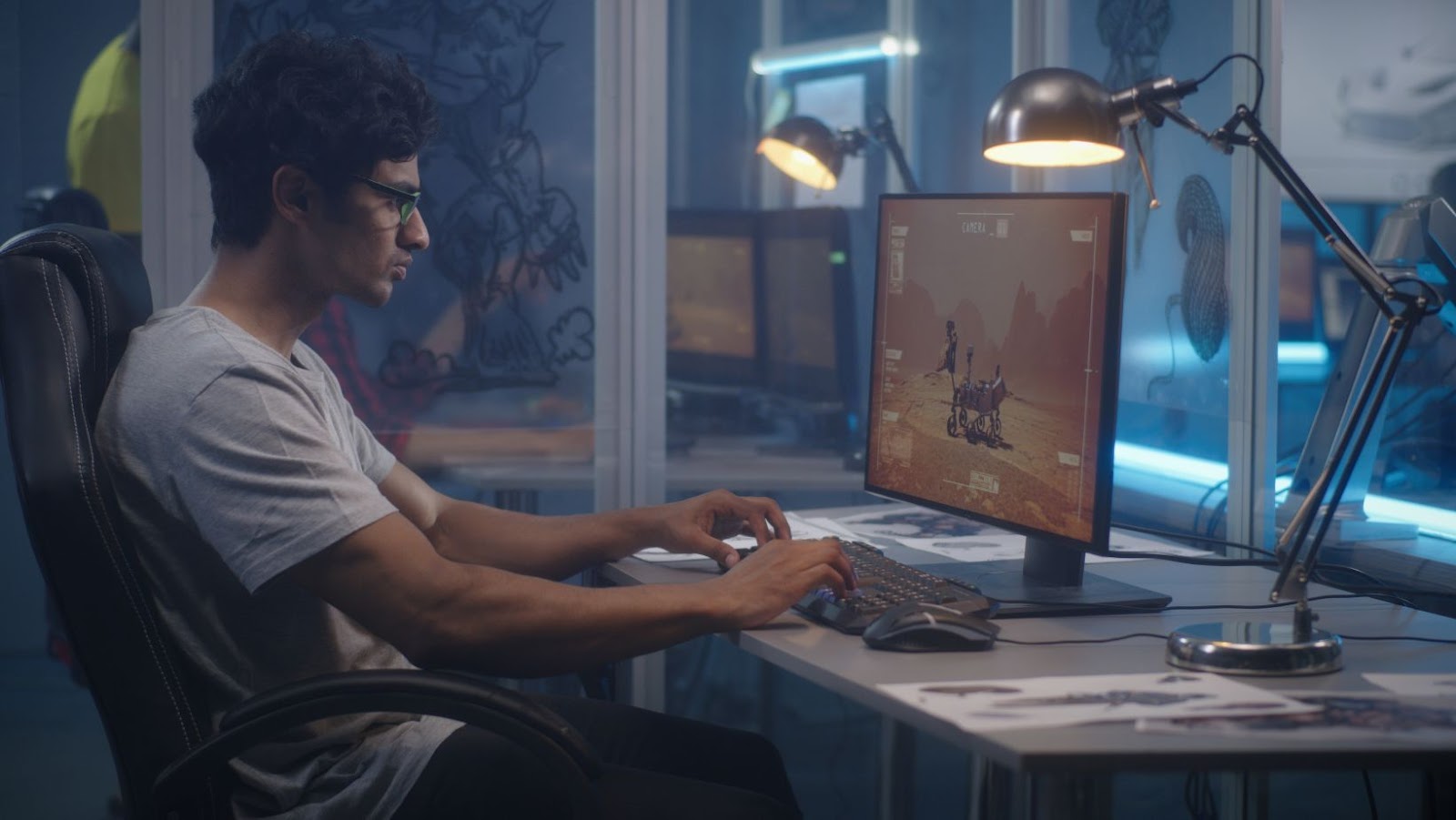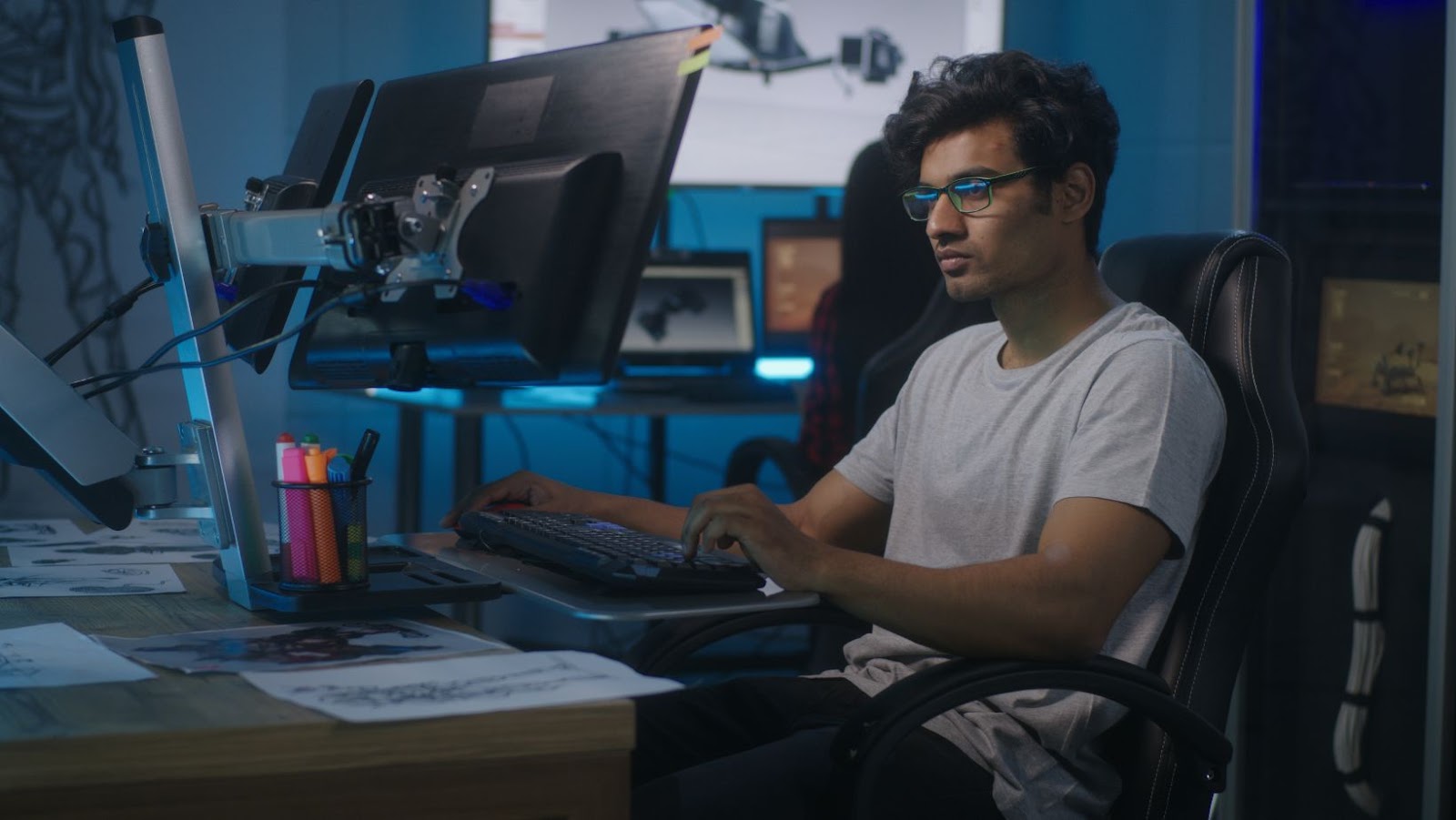 Gaming Software Developer Jobs
Gaming Software Developer Jobs
Gaming Software Developer Jobs vary greatly based on factors such as the genre of the game and the platform on which it’s being developed. This section provides a detailed examination of these roles along with the necessary skills and qualifications.
The Gaming industry thrives on constant transformation, making adaptable and quick-learning developers indispensable. The industry, dominated by major platforms like PC, PlayStation, Xbox, and mobile devices, benefits significantly from emerging technologies. The advent of technologies such as Virtual Reality, Augmented Reality, and Artificial Intelligence prompts developers to continuously hone their skills. The sector, for instance, saw hyper-casual games gaining immense popularity in recent years, requiring developers to grasp the nuances of creating satisfying yet straightforward gaming experiences.
To excel in a Gaming Software Developer job, a diverse set of technical skills becomes crucial. These roles typically demand proficiency in programming languages, namely C++, Java, and Python. Moreover, mastery over development tools such as Unity and Unreal Engine is commonly expected. Depth understanding of the game design process, from ideation to testing, is another necessity.
While a degree in Computer Science or a related field has been traditionally sought, the growing acknowledgement of self-taught skills and relevant experience is changing the landscape. Developers are more frequently evaluated on their portfolio, showcasing their applied knowledge and creativity, over linear educational qualifications. Strong problem-solving abilities, a keen eye for detail, and a passion for gaming also complement the technical prowess needed in this field.
 Duties and Responsibilities of a Gaming Software Developer
Duties and Responsibilities of a Gaming Software Developer
Carrying out game programming is the primary responsibility of a gaming software developer. This process comprises several stages. They analyze designs and specifications at the initiation of the project, setting the foundation for subsequent tasks. Developers then engage in rigorous programming, employing languages like C++, Java, and Python. After the foundation of this work is laid out, they spend time debugging, testing, and rectifying any deviances. Polishing the game — addressing user experience and performance optimization — is the final stage in this cycle. For instance, tweaking the gameplay based on beta tester feedback often leads to a more engaging experience for the end-user.
Collaboration is potent in handling a project, especially in the game development field. Here, the interactions between gaming software developers and other team members are paramount to the success of a project. Developers work hand-in-hand with game designers to understand the game’s vision and implement it programmatically. They share updates, feedback, and revisions with project managers to keep the development process on track. Being in frequent connection with graphic artists allows for seamless integration of visual elements into the game. For example, a developer may work with a 3D artist to ensure that a character’s movements are realistically animated. Moreover, developers coordinate with quality assurance teams to debug and refine the gameplay until it meets the standards set by the team and the industry at large.
 How to Land a Gaming Software Developer Job
How to Land a Gaming Software Developer Job
Pursuing a career in gaming software development offers exciting opportunities to meld creativity with technicality. This section presents steps on how you can secure a job within this ever-evolving industry.
The foundation of success in game development, typically, lies in one’s academic and technical training. A Bachelor’s degree in Computer Science, Software Engineering, or a related field often provides the essential theoretical knowledge and practical experience required for this profession. Additionally, proficiency in programming languages like C++, Java, and Python is a must.
Several reputable institutions offer degrees in Game Design and Development which, uniquely, blend computer programming with creative design. For ongoing learning, there are a multitude of online platforms offering courses in specific areas, such as game design principles, 3D modeling, and the use of popular game engines like Unity and Unreal Engine.
A carefully curated portfolio can be instrumental in securing a gaming software developer job. This portfolio should showcase your creativity, problem-solving abilities, and technical competency. Even if some experiences were unpaid or part of your studies, they still demonstrate your skillset and enthusiasm.
Endeavor to accumulate diverse projects that highlight your adaptability and versatility. Use it as an opportunity to showcase the range of your abilities, from designing engaging gameplay loops to implementing dynamic AI characters.
Ensure the portfolio is accessible and easy to navigate, with detailed breakdowns of your specific contributions to each showcased project. To keep it up-to-date, regularly refresh your portfolio with new content, demonstrating both your continued growth within the field and your commitment to maintaining contemporary knowledge.